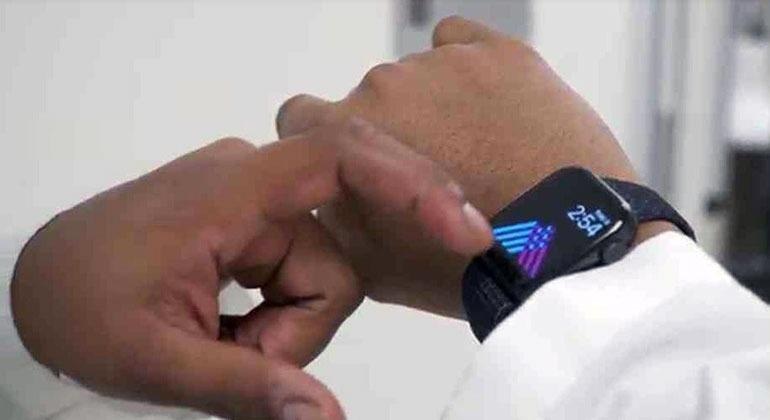A new study reports that health care workers who exhibited strong emotional support or high resilience were protected against the impacts of stress associated with the COVID-19 pandemic than those who had low emotional support or resilience.
 Image Credit: Icahn School of Medicine at Mount Sinai.
Image Credit: Icahn School of Medicine at Mount Sinai.
The study was published in the Journal of Medical Internet Research on September 13th, 2021.
Researchers from the Icahn School of Medicine at Mount Sinai also identified that the number of people with COVID-19 in the community was a major factor related to stress in health care workers overtime.
They also discovered that high emotional support or high resilience — the potential to overcome challenges and lower susceptibility to environmental stressors — led to an exclusive nervous system profile, showing that these features influence not only how health care workers perceive stress but also how their bodies are physically influenced by stress.
Our study highlights the importance of emotional support and resilience in moderating the effects of stress on health care workers during the ongoing pandemic. Assessing the resilience and emotional support of health care workers may be able to help identify those at risk from ongoing stressors and may help guide health care institutions in allocating mental health resources for these at-risk employees.
Robert P. Hirten, MD, Assistant Professor of Medicine (Gastroenterology), Icahn School of Medicine at Mount Sinai
Dr. Hirten is the corresponding author of the study and a member of the Hasso Plattner Institute for Digital Health at Mount Sinai and the Mount Sinai Clinical Intelligence Center (MSCIC).
Several hundred participants of the study wore an Apple Watch that quantified their heart rate variability and a customized app was downloaded to complete weekly surveys that assessed perceived stress, emotional support, resilience, optimism and quality of life.
Scientists identified that health care workers with high emotional support or high resilience exhibited different autonomic nervous system stress patterns than those who had medium or low emotional support or resilience.
The autonomic nervous system is a key component of the stress response and can be identified by quantifying the heart rate variability. The study concluded that the physiological results of the participants were in agreement with their self-reported answers.
The experience of this pandemic has been especially stressful for health care workers, and as a community we need to be able to support them, especially as the virus persists. Our study is one of the first to document not only the toll the pandemic has taken on our health care workers, but also the importance of resilience and social support as specific paths toward efficiently and effectively directing support.
Zahi Fayad, PhD, Lucy G. Moses Professor of Medical Imaging and Bioengineering, Icahn School of Medicine at Mount Sinai
Dr. Fayad, who is the co-author of the study, is also the Director of the BioMedical Engineering and Imaging Institute and Co-Founder of the MSCIC.
The recent results from the Warrior Watch Study are based on earlier research that used wearable devices to recognize COVID-19 cases earlier than conventional diagnostic methods.
The physical activity of participants was monitored by the researchers and even slight changes in their heart rate variability measured by an Apple Watch were tracked, which denoted the onset of COVID-19 up to seven days before the person was diagnosed with the infection through the nasal swab.
Journal Reference:
Hirten, R. P., et al. (2021) Factors Associated With Longitudinal Psychological and Physiological Stress in Health Care Workers During the COVID-19 Pandemic: Observational Study Using Apple Watch Data. Journal of Medical Internet Research. doi.org/10.2196/31295.